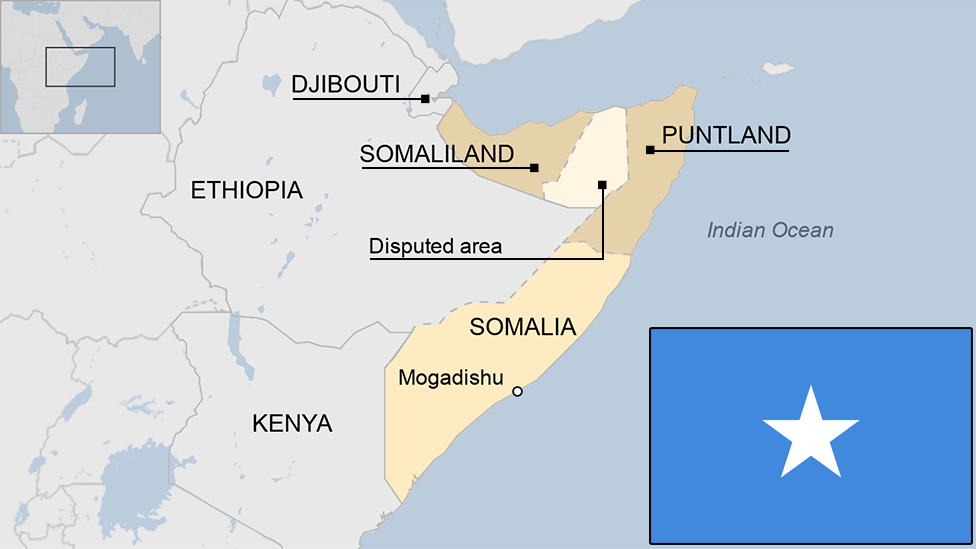Somalia piracy: India ship hijacked in new attack
- Published
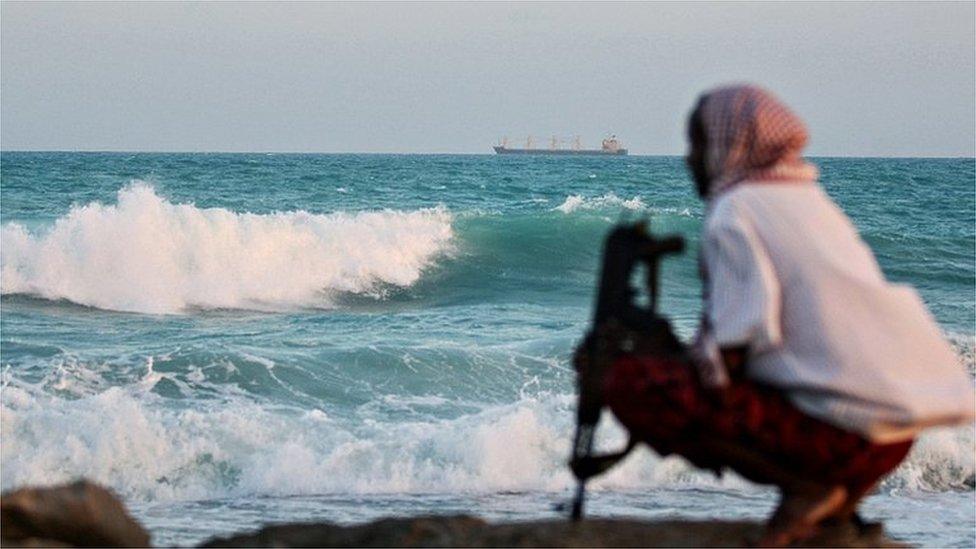
Piracy off the coast of Somalia has fallen sharply in recent years
Somali pirates have hijacked an Indian cargo vessel off the coast of the Puntland region, officials say.
It was believed to have been travelling between Dubai and Bosasso, in Puntland, when it was seized.
It is the second such attack recently. Last month, pirates seized a tanker bound for Mogadishu but released it apparently without conditions.
That incident was the first hijack of a large commercial ship off the Somali coast since 2012.
Maritime sources have identified the vessel as the Al Kausar with 11 crew on board.
The AFP news agency said it had contacted the vessel's owner and been told it was carrying goods such as wheat and sugar.
A crew member had apparently phoned the owner to tell him the vessel was hijacked at sea last Friday. Five gunmen were said to be on board, but no-one had been hurt.
Senior Indian shipping official Nalini Shankar said the vessel was "not a big ship, but a dhow", the Press Truss of India reported.
The Somali website Daynile said the attack happened some 50km (30 miles) south of the port town of Hobyo.
Billion dollar industry
Piracy off the Somali coast - usually for ransom - has dropped significantly in recent years, in part because of extensive international military patrols as well as support for local fishing communities.
At the height of the crisis in 2011, there were 237 attacks and the annual cost of piracy was estimated to be up to $8bn (£7bn).
The factors that drove many Somali coastal fishermen to become pirates nearly a decade ago are still there, says the BBC's security correspondent Frank Gardner.
Somalia is currently in the grip of a famine. Poverty is widespread with few employment options for young people.
There is also continued local resentment at the poaching of fish stocks off the coast by Asian trawlers.
- Published16 March 2017
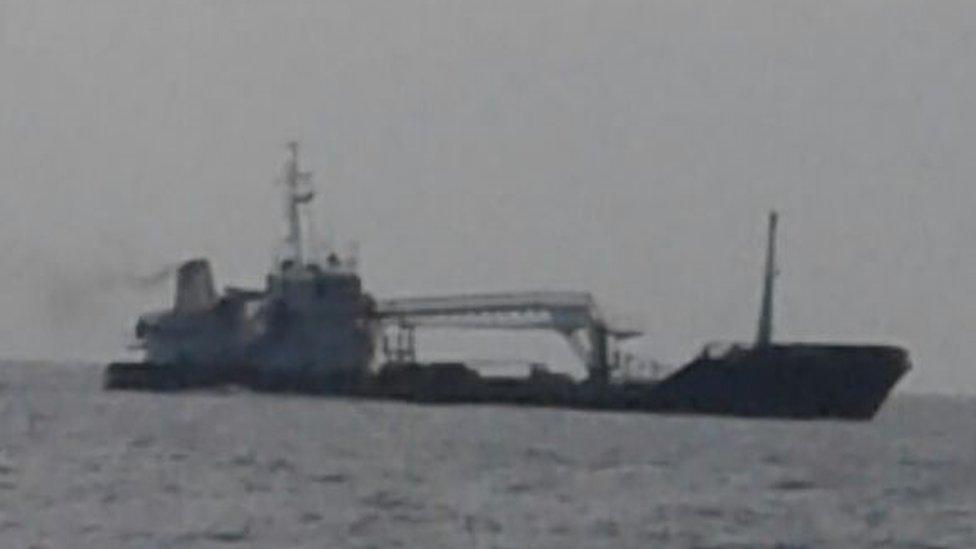
- Published16 March 2017
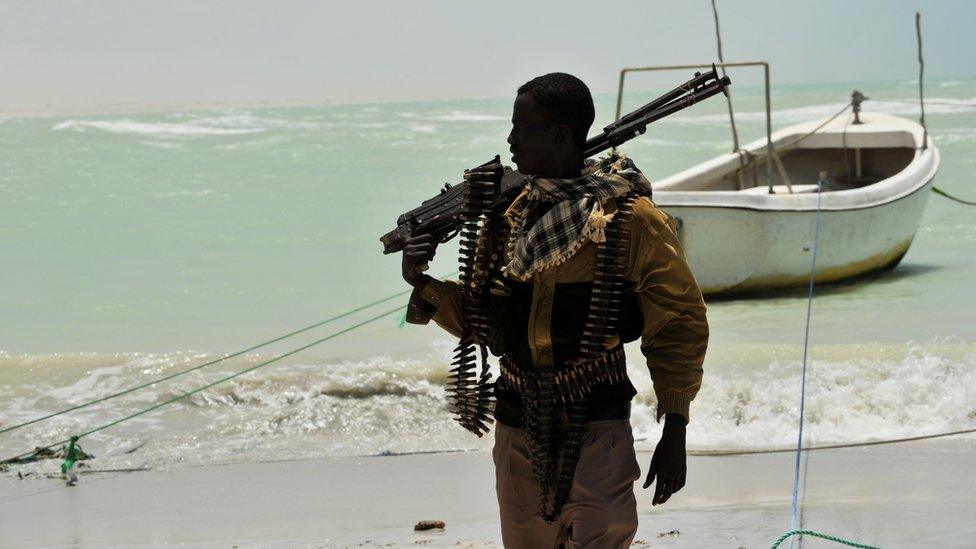
- Published31 August 2015
- Published29 November 2012
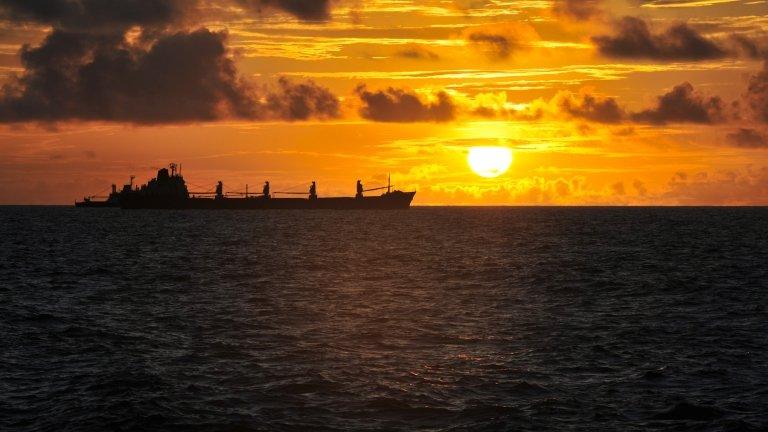
- Published20 October 2013
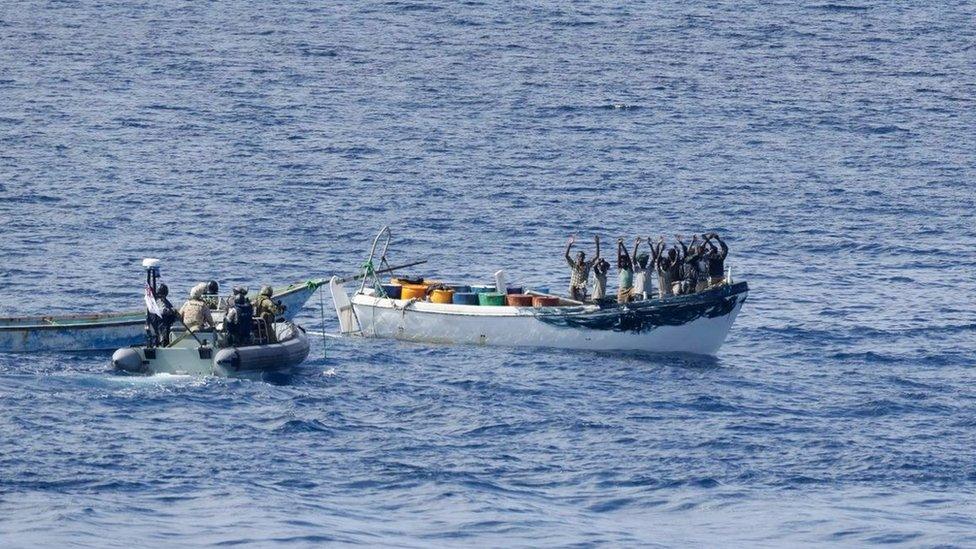
- Published2 January 2024
